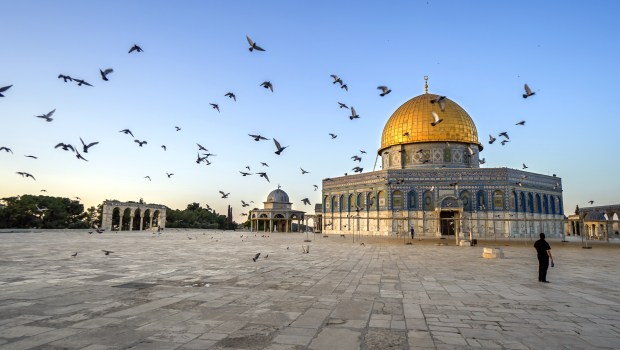Lenten Campaign 2025
This content is free of charge, as are all our articles.
Support us with a donation that is tax-deductible and enable us to continue to reach millions of readers.
The Gospel for this Sunday is Luke 21:5-19
1. A word of introduction
How would we react if someone told us that there would not remain a stone on a stone from St. Peter's Basilica in Rome? Wouldn't we be disturbed? Those who listened to Jesus reacted similarly. The Jerusalem Temple was the most important and holiest place on earth in Judaism.
2. Key words
While some people were speaking about
how the temple was adorned with costly stones and votive offerings,
Jesus said, "All that you see here--
the days will come when there will not be left
a stone upon another stone that will not be thrown down."
Jesus knew what would happen in the future. He referred to the events of 70 AD when the Romans murdered thousands of Jerusalem residents and visitors and burned the Jerusalem Temple.
The Temple has not been re-constructed even to this day. The worship of God in Judaism has only continued in synagogues.

The site of the Jerusalem Temple has undergone many changes over the centuries. There was a Christian temple on the site. Around 690, Muslims built a shrine there, still known today for its golden dome. It is one of the oldest Muslim buildings. After Mecca and Medina, it is the third most holy place for Islam. According to Muslim tradition, the Prophet Muhammad was taken to heaven from the rock inside this shrine. Hence the name "Dome of the Rock." It is not a mosque, but a holy place for Muslims.
A portion of the retaining wall that surrounded the Jerusalem Temple has survived to this day. It is called the "Western Wall" or " Wailing Wall." It is a famous place of prayer for Jews.
3. Today
In the Catholic Church, every church is -- by analogy -- like the Temple of Jerusalem, because within them is the holy of holies, the tabernacle, and therein Jesus Christ.
How often do I visit Jesus in church? Do I visit him alone or with my family?









